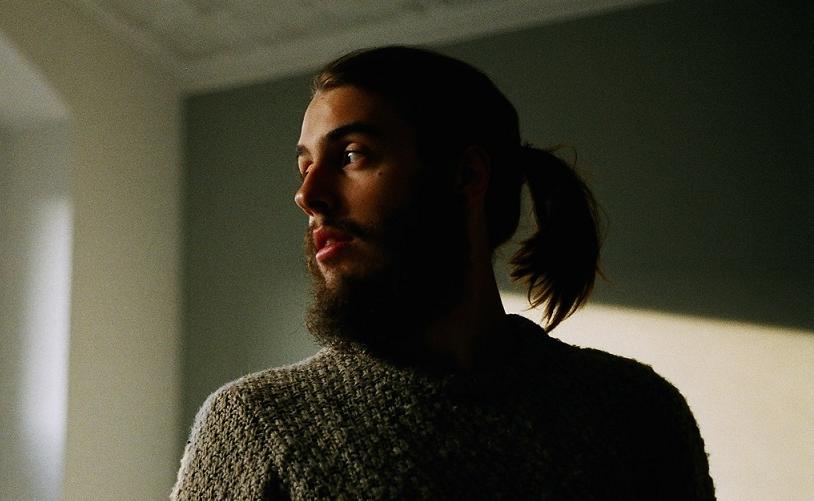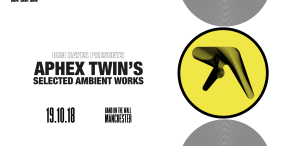
Aphex Twin’s Selected Ambient Works 85-92 is widely regarded as one of the greatest albums of the nineties and a landmark release in the field of electronic music. Its unique sound, achieved with a variety of instruments, recording and compositional techniques, resonates with artists and writers around the world. Both journalist Joe Muggs and producer Paul White have separately extolled its captivating qualities for FACT magazine, but until recently, few have attempted to return Richard D. James’ ambient, dub techno and minimal masterworks, to the live arena. London-based producer and jazz bassist Ben Hayes does just that this Autumn. Flanked by some of London’s most exciting young creatives, he’ll revisit the material that made Aphex Twin a frontrunner in UK electronica. Ahead of the show, Ben tells us about getting inside the music with his London-based collaborators, respecting Richard D. James’ public persona and listening to records away from this project.
There’s endless debate online as to how Aphex Twin produced and recorded his early material. When getting to grips with his Selected Ambient Works, were you determined to find out as much as possible about the equipment and samples behind those productions, or were you more focussed on the compositional elements and the nuance of the arrangements/programming, so you could capture the essence of the music with whatever gear you chose?
BH: ‘I think we’d have been doing this album a disservice if we didn’t try to understand, at least as much as we could, the tools that were used. More and more I’m discovering just how much the hardware, software, instruments, even locations, involved in making a record are imprinted into its sound and its soul, because they shape the creative decisions available to you. So it was really important to me to at least be aware of this.
That said, this project was never about recreating the exact sonics of the album. We’ve definitely sourced some samples, and imitated some of the approaches to synthesis, sequencing and sampling that were present in the gear we believe he used, but mainly we’ve just tried to inhabit the sound world and explore it for ourselves.’
Please can you introduce the guys who join you on stage and tell us a little about how you first met and approached them about this project?
BH: ‘So for this gig I’ll be joined by some amazing musicians, with a couple of differences from when we’ve performed the album previously. On electronics, we have Maxwell Owin, who I first met when we were DJing the same night. As well as being genuinely one of the warmest people I’ve ever met, he’s an incredibly skilled producer, and his sound is fully woven into the London scene. On drums/drum machines, it’s Tim Doyle, who plays in some amazing bands like Maisha, Cykada and Don Kipper. He’s also got a mind-blowing solo project called Chiminyo, where he augments his drum kit with a custom built system of triggers and homegrown software, so that he can create spectrally dense electronic music entirely live. Finally, on keys and synths we’ve got Dave Koor, who is involved in so many exciting things it’s hard to know where to start. He co-runs a label called Albert’s Favourites, at the same time as being a monster selector, at the same time as playing with the Expansions, Wu-Lu, Andrew Ashong, Connie Constance, and loads more.’
Many of those guys are integral to the exciting South London scene. What have the last 12-18 months been like for you and your peers, as attention on the area and its musicians has intensified?
BH: ‘It’s been pretty surreal for everyone, and in different ways. It really hit home at Nubya Garcia’s EP launch at Jazz Café last May – it felt like such a recent memory that we were all young and uncertain at music college together, but looking up at the stage instead I see a superstar, with a packed venue hanging off every note she played. Sometimes it’s been a little strange transitioning so quickly from the family affair that has been the south London scene for almost the last decade, but ultimately it’s a beautiful thing that people are able to support themselves with their art, and receive the appreciation they deserve. There has always been a lot of mutual love and support between artists around here, and that’s not going away.’
The volumes of Selected Ambient Works are altogether different in sound to Drukqs or the recent T69 collapse. What have you made of Aphex Twin’s artist progression and what are your thoughts on how he manages his public image, having been able to make music for a long time without revealing too much about himself, his working process and private life?
BH: ‘I’ve got nothing but respect for the way he’s looked after the public facing side of his career. I’m sure it was at least as much by chance as by design when he was young, but now he’s revered as one of the most important electronic music voices of our generation, whilst maintaining genuine privacy, and that doesn’t happen without some effort.
I’ve also admired for a long time the sort of complicit resistance he showed to the attempts to commodify his music in the 90s, which I think were telling of his attitude towards the idea of art as a product. Rather than being totally subsumed by the media machine, or outwardly resisting it, he simply disempowered it to dictate the course of his career by feeding it lies and rumours and misinformation. So whilst music journalists essentially got what they wanted in the form of an exaggerated character to prod and profile and postulate about, the same unpredictability they celebrated allowed him to move independently without damaging his public image.’
Aside from Aphex Twin, what have you been listening to recently? Any new or old music you’ve been turning your peers on to?
BH: ‘I’ve been really enjoying what Whities have been putting out recently, and have been digging back through their catalogue as I slept on a lot of it when it was released. Minor Science and Reckonwrong, in particular, I’ve been really digging. I’ve also been getting back into a lot of footwork, and in particular feeling Jlin’s production. Oh and Vtignike dropped an album in 2014 called Dubna, which I’d saved and never came back to, but it’s seriously worth checking out. Aside from that, Alabaster DePlume’s recent album The Corner of A Sphere is getting heavy rotation, as is the new Blood Orange record.
If Richard D. James were to turn up to a show and you had chance to chat backstage, what might you or ask or tell him?
BH: ‘There probably wouldn’t be enough time to get into everything, so I’d have to focus on one thing, and I’d probably have to geek out and grill him about sequencing. I’ve yet to find another artist who can get the same complexity on so many levels of subtlety from the sort of equipment he uses. I’d love to understand his mindset and approach to making the gear sing.’


